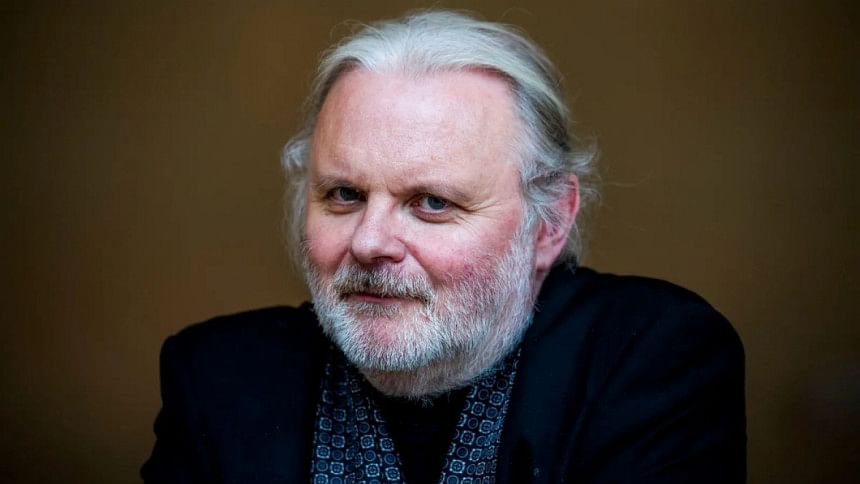Where to Start with Nobel Laureate, Jon Fosse

On 5th October, 2023 the acclaimed Norwegian playwright and poet, Jon Olav Fosse, won the Nobel Prize in Literature "for his innovative plays and prose which give voice to the unsayable." Fosse's works are characterized by their minimalist and existentialist themes, often exploring the inner lives and emotions of his characters. After winning the Nobel Prize, a lot of hungry readers are seeking an entry point into his writings. Here are some insights into Jon Fosse's oeuvre.
Novel
Jon Fosse constructs introspective novels which delves into the inner lives of his characters. His novels explore the rich inner lives of his protagonists which delves into identity construction, depression and melancholia, isolation and the overall human condition. Interested readers can take a look at his novel entitled Melancholy. This novel explores the life of Lars Hertervig, a 19th-century Norwegian painter who struggled with mental illness. Fosse's lyrical and introspective prose delves into Hertervig's inner world. It is a classic tale of a tortured artist, who while studying at his university, becomes distraught and homeless. Later, the paralyzed Hartervig's stagnant life, his insatiable attraction to the landlady's daughter, and his terrible sexual delusions drive the plot of Melancholy.
Fosse's The Other Name: Septology I-II (Original title: "Det andre namnet: Septologien") is a multi-part novel that delves into the themes of identity, existence, and self-examination. It is divided into two volumes: "I. The Other Name" and "II. And the Breath." This novel explores the life of a man who adopts a new name, Asle, and the complexities of his existence. Fosse's writing in "The Other Name" is known for its minimalist and thoughtful quality, which allows readers to immerse themselves in the inner thoughts and reflections of the protagonist.
Boat House is another notable crime and romance novel by Jon Fosse, originally published in Norwegian in 1998. From the perspective of an unknown narrator, the reader will find a largely spiritual man who unexpectedly encounters a long-lost childhood friend and his wife. The thrilling novel will gradually turn into a criminal and ominous love triangle, crossing the bridge of jealousy, betrayal and finally inviting death.
There are many other notable mentions of Jon Fosse's world of novels, such as Septology, Aliss at the Fire, and Trilogien. Exploring Fosse is like diving into the complex inner webs of human consciousness.
Poetry
Jon Fosse is skillfully artistic in equal measures in poetry as well as drama. Between 1986 and 2019, many of his poems published in his native language have been published in about 13 anthologies. According to Fosse's own agency's website, Winje Agency, an English edition published in 2001 by Samlagate Publishing is said to include his first four poetry collections, titled Angel with Watery Eyes, The Movements of the Dog, Dog and Angel, and New Poems and Eyes in Wind. His poetry often explores themes similar to his other works, such as the human condition and the complexities of human relationships.
Plays
Jon Fosse had always expressed skepticism about the theatre. Despite that, he wrote his first play in 1992, later describing this as the greatest revelation in his writing life. "Nokon kjem til å kome" (Someone Is Going to Come) is the first play Fosse wrote, although "Og aldri skal vi skiljast" (And Never Shall We Part) was the first to be performed, at the National Theater in Bergen in 1994.
"En sommardag " (A Summer's Day) is a play which centers on a woman who meets a man in a park, and their conversation leads to profound revelations about life and love. "Vinter" (Winter) is a play that focuses on a family living in isolation during winter, where they confront their fears and secrets. "Søvn" (Sleep) is a monologue play in which a man reflects on his life, relationships, and the nature of existence while lying in bed.
These plays are known for their sparse dialogue, repetitive language, and the use of silence and pauses to convey the subtext of the characters' emotions and thoughts.
Fosse's work is characterized by its focus on human relationships, particularly those between family members, friends, and romantic partners. He examines the complexities and contradictions of these relationships, exploring themes of love, loss, betrayal, and redemption. His writing is often termed as 'minimalist' writing where he allows space and silence to fill in the emotions that the readers build up while reading. Fosse's plays have been translated into over 40 languages and are performed internationally, ensuring his legacy will continue to reach new audiences. His writing has given a peek into Norwegian livelihood, otherwise unexplored by the global audience. But other than that, Jon Fosse's writing explores something profoundly human which transcends time and geographical boundaries.
Tasnim Naz is an academician of English Literature in Bangladesh University of Professionals. Her research interests are Feminism, Diasporic Study and Postcolonial Studies. Reach her at [email protected]

 For all latest news, follow The Daily Star's Google News channel.
For all latest news, follow The Daily Star's Google News channel. 








Comments